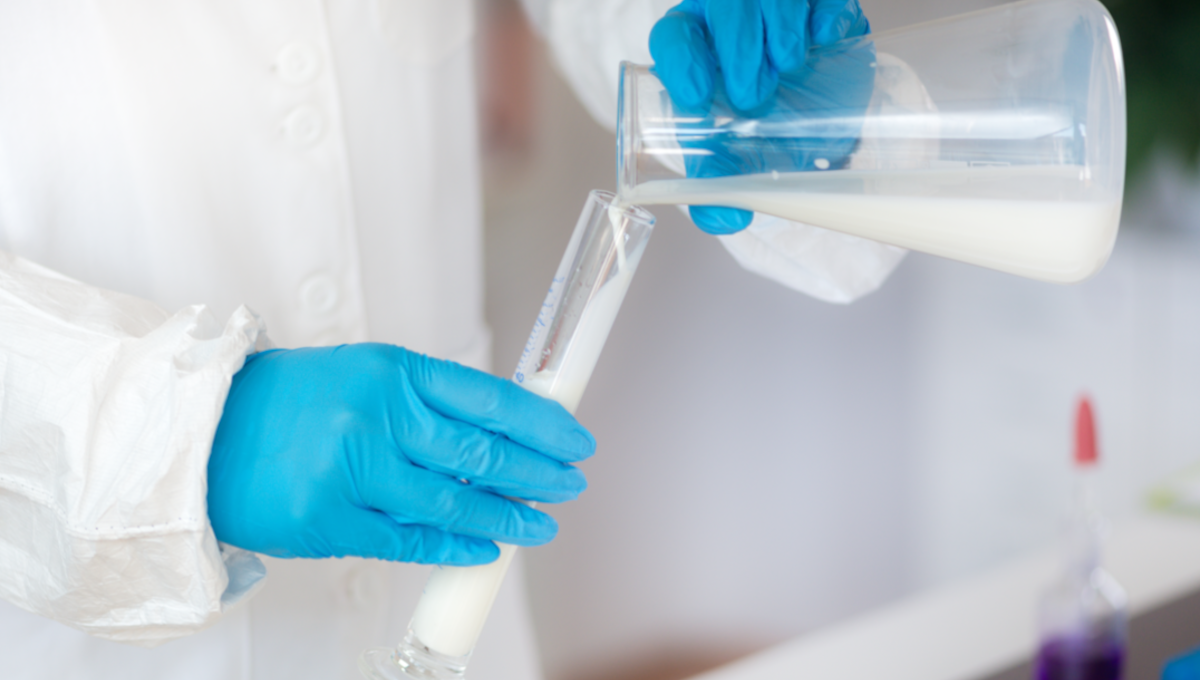
According to a new study from Stanford University, the influenza virus can remain infectious in raw milk stored at refrigeration temperatures for up to five days. The research, published Dec. 12 in Environmental Science & Technology Letters , underscores the potential health risks associated with consuming unpasteurized milk at a time when outbreaks of avian influenza in dairy cattle are raising alarm.
“This work highlights the potential risk of avian influenza transmission through consumption of raw milk and the importance of milk pasteurization,” said Alexandria Boehm, senior author of the study and professor at the Stanford Doerr School of Sustainability. The study examined the survival of the avian influenza virus in raw cow’s milk at typical refrigeration temperatures. Researchers found that not only did the virus remain infectious for several days, but its RNA—a genetic marker used for virus detection—persisted in raw milk for more than 50 days.

Although the RNA itself does not pose a health risk, its prolonged presence complicates food safety assessments and surveillance efforts. Pasteurization, which involves heating milk to eliminate harmful pathogens, was shown to completely deactivate the infectious influenza virus and reduce RNA presence by nearly 90 percent. Raw milk popularity and risks An estimated 14 million Americans consume raw milk annually, despite warnings from public health officials.
Proponents claim raw milk is more nutritious and contains beneficial enzymes and probiotics often diminished by pasteurization. However, the U.S.
Food and Drug Administration has linked raw milk to more than 200 outbreaks of foodborne illnesses caused by pathogens such as E. coli and Salmonella. The Centers for Disease Control and Prevention caution that children, pregnant women, the elderly and immunocompromised individuals face the highest risks from consuming raw milk.
The study’s findings add influenza viruses to the growing list of potential threats posed by raw milk consumption. Researchers warn that avian flu’s ability to jump from animals to humans — as seen in prior pandemics — makes vigilance essential. California recalls highlight emerging risks The study’s publication coincides with raw milk recalls in California.
On Dec. 15, the California Department of Food and Agriculture (CDFA) issued a statewide recall of raw milk products from Valley Milk Simply Bottled in Stanislaus County after tests detected the H5N1 avian influenza virus in bulk-milk samples. This follows similar recalls involving Raw Farm LLC in late November and early December, which were prompted by contamination with the bird flu virus found in retail milk samples.
“Drinking raw milk containing bird flu virus may lead to infection with this rare, emerging flu virus,” warned the CDFA in a public advisory. The agency urged consumers to discard any affected products and reminded retailers to pull recalled items from shelves. A growing public health concern Avian influenza has decimated poultry and livestock across the United States, with more than 700 dairy herds testing positive for the virus since March.
California’s Central Valley, a hub for dairy production, has been particularly hard hit. Unlike pasteurized milk, raw milk is not routinely tested for avian flu, raising concerns about gaps in monitoring. “The persistence of infectious influenza virus in raw milk for days raises concerns about potential transmission pathways,” said Mengyang Zhang, co-lead author of the Stanford study.
“The virus could contaminate surfaces and other environmental materials within dairy facilities, posing risks to animals and humans.” The Stanford research also complements efforts to monitor zoonotic pathogens through wastewater analysis. Previous work by the same research team used wastewater to detect influenza activity in dairy operations.
This novel approach, already scaled for national use, offers another layer of protection by identifying outbreaks early. Calls for better oversight Despite the documented risks, raw milk sales remain legal in many states. California allows retail sales of unpasteurized milk, provided containers bear a warning label about potential pathogens.
Advocates argue for consumer choice, but public health experts warn that raw milk’s rising popularity poses significant risks. Mark McAfee, owner of Raw Farm LLC, has noted a 50 percent annual growth in raw milk production and sales in California. Federal law prohibits interstate sale of unpasteurized milk, but local and state regulations vary widely.
As demand grows, so does the need for stricter oversight, experts say. The Stanford study’s authors echo this sentiment, urging improved monitoring systems as bird flu continues to spread among livestock. They warn that while the current risk of milkborne influenza transmission to humans is low, the virus’s ability to mutate makes proactive measures critical.
As avian influenza and other pathogens continue to challenge food safety systems, studies like Stanford’s provide valuable insights into the risks and underscore the importance of science-based interventions. The full study can be found here . (To sign up for a free subscription to Food Safety News, click here .
).















